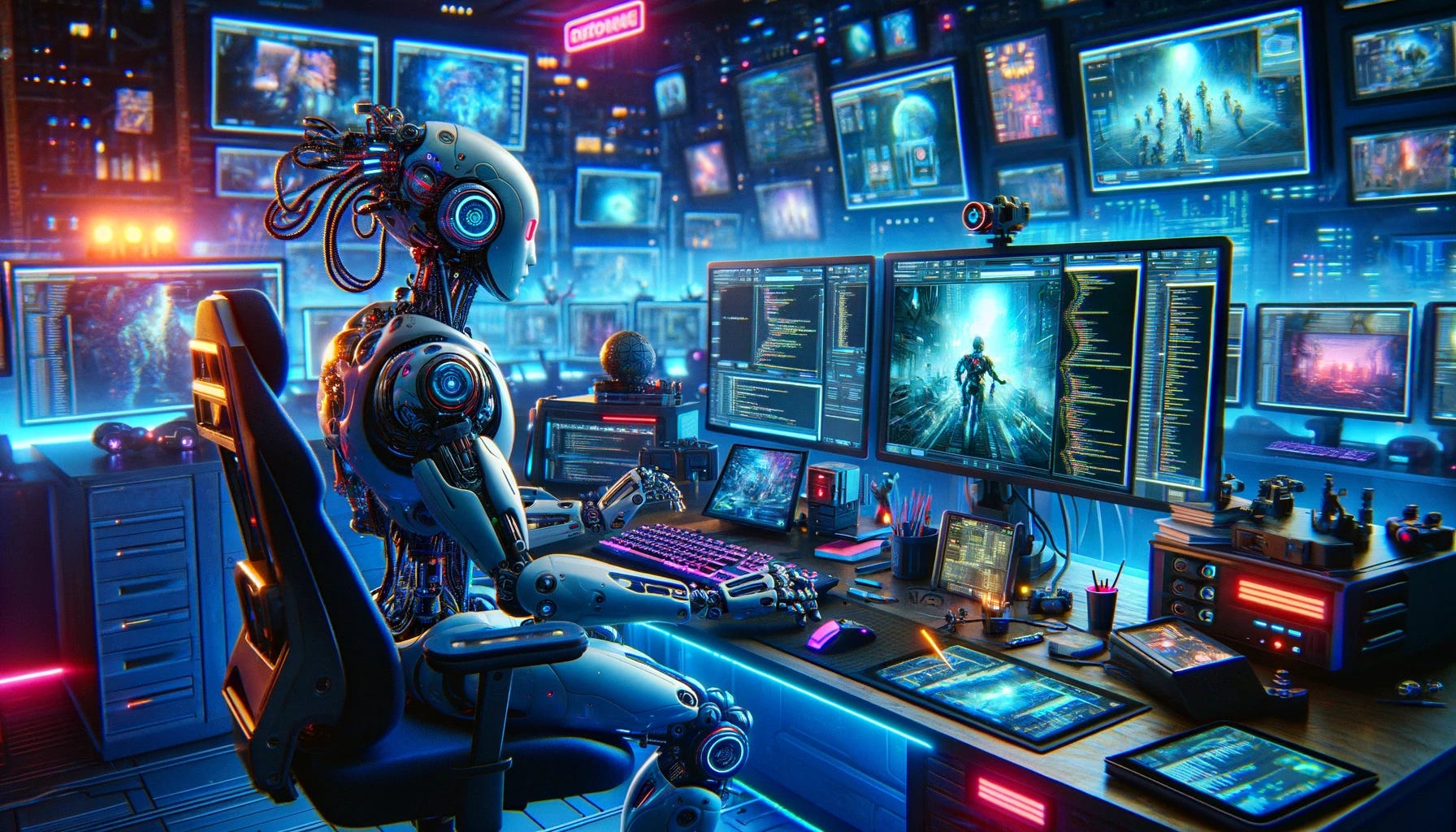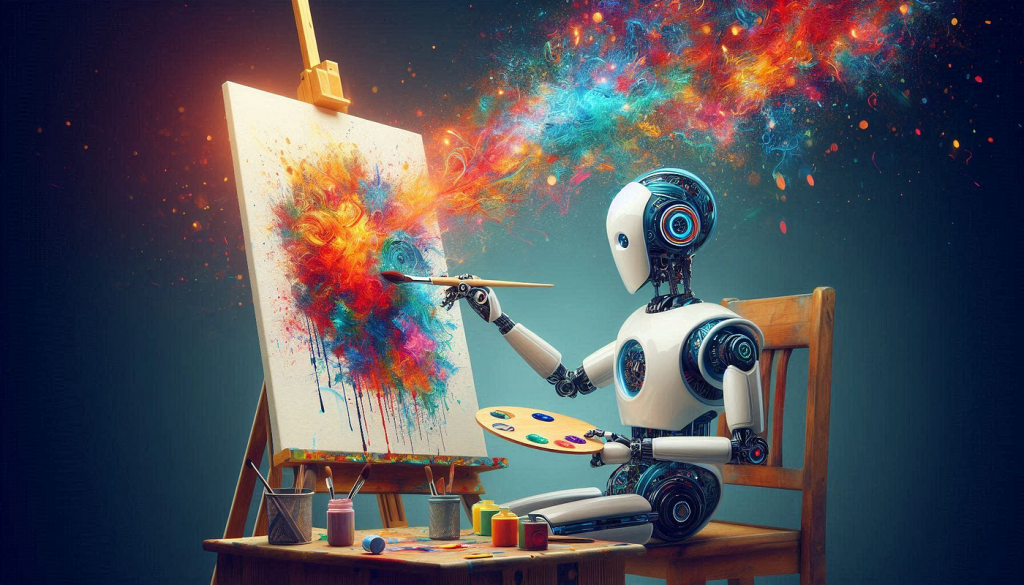How AI is Revolutionizing Game Development: A New Era of Creativity

Imagine you’re playing a game where every choice you make changes the world around you.
Characters remember you. Quests evolve. The storyline bends around your decisions. Sounds futuristic? That’s the reality AI is making possible right now.
We’ve moved way past the era of clunky enemy patterns and predictable NPC behaviour. AI is now helping developers of all sizes.
Whether you are an indie creator or a mobile game development company, AI has created a level playing field for everyone to bring life to their projects in ways that were once unimaginable.
And the best part? Players are getting deeply immersive, responsive gameplay experiences that feel personal and exciting every time.
The AI Toolbelt: How Developers Are Building the Future
AI isn’t just one tool, it’s an entire toolbox that’s reshaping how games are made from the ground up. Below are some of the most common use cases of AI tools by a Mobile app development company and how you can do the same.
Creating Worlds from Words
One of the coolest breakthroughs? Procedural content generation. Tools like Promethean AI can build 3D environments based on a simple text prompt. It’s like turning your imagination into a game level.
Another tool, Layer.ai, offers ready-made templates that developers can tweak and expand, speeding up the design process like never before.
Visuals that Pop, Without the Crunch
Art has also gotten a major AI boost. Though it has sparked a debate about AI plagiarisms, the speed and brilliance of these tools cannot be ignored.
Platforms like Scenario let game artists train AI models on their own styles, making sure all the assets stay visually consistent.
Leonardo AI takes it up a notch by creating optimized 3D models. This multi-model AI development tool is ideal for developers who need to balance quality with performance, especially in mobile gaming.
Smarter Gameplay, Seamless Experiences
AI isn’t just behind the scenes anymore, it’s at the heart of gameplay. News feeds are brimmed with AI tools making wonders in the world of gameplay design and player interactions.
Ludo.ai adapts to how players play, tweaking difficulty and pacing so things stay fun without becoming frustrating.
Meanwhile, if you are an AI-savvy mobile game development company, you would know how narrative AI like Charisma makes sure in-game conversations and choices feel natural, not robotic.
These aren’t just fringe tools. The AI gaming market is expected to hit $15.8 billion by 2026, and over 60% of studios are already using AI in their workflow.
Game On: How Players Benefit from AI
Let’s talk about what really matters. Will AI stay its hype or this will become just another trend that the masses adopted before it vanished in thin air?
How all this tech translates into better games for players. Will it actually make a difference for players or end users? Let’s find out.
Adaptive Difficulty Keeps the Fun Alive
Ever rage-quit a game because it got too hard or lost interest because it was too easy? AI fixes that. Games can now adjust on the fly, whether by changing enemy behaviour, tweaking puzzles, or giving players more tools, based on how they’re doing.
If you are a mobile game development company, you can use AI tools to build games that actually listen to your audiences.
Personalized Content Just for You
AI can also make games feel more you. Maybe you love exploration and hate fighting. The game can serve up more hidden areas instead of combat. Prefer puzzles over fetch quests? The experience morphs to suit your style, keeping things fresh and exciting.
Characters with a Pulse
Gone are the days of NPCs who just stand around repeating the same line. AI-driven characters react to what you do, where you go, and how you behave. Crowds feel alive. Conversations feel real. It all adds up to worlds that pull you in and don’t let go.
For any game app development company, this means happier players who stick around longer. And we all know: player retention is king.
Real-World Wins: Games Already Using AI Brilliantly
So, what does this all look like in action? Let’s check out some heavy hitters using AI to raise the bar.
Hogwarts Legacy – Living, Breathing Environments
This game uses smart routing systems so NPCs can go to class, hang out in common rooms, or react to the player, all without slowing the game down. It creates the illusion of a living world, and it works.
No Man’s Sky – A Universe Built by AI
This one’s the poster child for procedural generation. Entire planets, creatures, and ecosystems are crafted by AI. It’s not just random, it feels like a natural, endless universe waiting to be explored.
Elden Ring – Boss Fights that Keep You Guessing
You can’t just learn a pattern and win anymore. Enemies adapt to how you fight, especially bosses. The AI ensures every encounter stays intense and unpredictable, but fair.
What’s Next? AI’s Role in the Future of Gaming
We’re just scratching the surface. The next wave of AI in gaming is going to be wild.
Entire Games, Built by AI?
It’s not far-fetched to imagine AI handling whole parts of development—from coming up with ideas to building game mechanics. Humans will still steer the ship creatively, but AI could help bring concepts to life faster than ever.
NPCs with Real Memory and Emotion
Soon, characters in games might remember everything you’ve done. They could develop opinions about you, change their behavior based on your actions, and evolve across entire story arcs. That’s storytelling on a whole new level.
Challenges Ahead
Of course, with great power comes great responsibility. The industry will need to grapple with things like job displacement, who owns AI-generated content, and how to preserve creativity in a world full of automation.
For any game app development company wanting to stay ahead, embracing AI while keeping a strong human touch will be the sweet spot.
Final Thoughts: Where AI and Creativity Meet
AI isn’t replacing developers, it’s empowering them. Handling the repetitive or technical bits, it frees up creators to do what they do best: dream up unforgettable experiences.
The key to success? Treat AI as a creative partner, not just a shortcut. The best games will come from a mobile game development company that knows how to blend human storytelling with smart, responsive technology.
And for players, this means more magical, tailored, immersive worlds that evolve around you.






